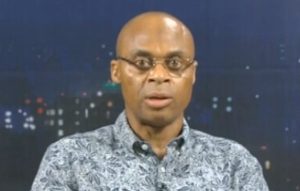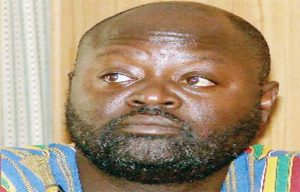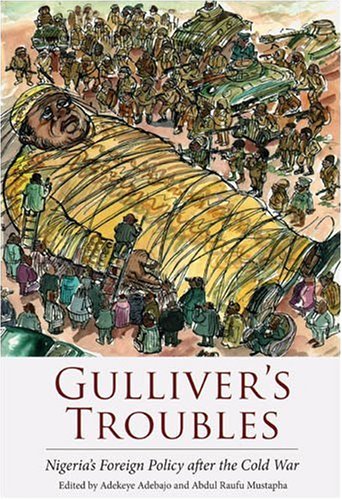The Centre for Democracy and Development – West Africa (CDD) is operationalizing a Concept Note for a memorial event in honour of Dr. Tajudeen Abdulraheem and Prof Abubakar Momoh. The event will take place May 30th, 2024. Intervention is, however, publishing the Concept Note unedited for the combined reason of the impeccable crafting of the stuff and the substantive issues it has raised. That combination of craft and content raises the stake as for all currents and confluences of serious concern with the decline of Nigeria to read it in full. In any case, Nigeria would have gone half-way in arresting her progressive deterioration of the country since 1999 in particular if she could come to grips with the evaporation of Left politics. The Concept Note, therefore, deserves as much publicity as the event it grounds and we begin with that.
Event Title: Memorial in Honor of Late Tajudeen Abdul-Raheem and Abubakar Momoh
Theme: Between Civil Society and Social Movements: The Role of Activism, and Contentious Politics in Deepening Democracy
Concept Note:
One of the central elements that defined the lives and careers of Tajudeen Abdulraheem and Abubakar Momoh was a profound commitment to radical activism. As both revolutionary theorists and organizers practically engaged with social movements, neither personality was shy about the role of contentious politics in achieving popular democratic transformation. In this respect, both men thoroughly embodied the ideal of the “scholar activist”, a term often used but rarely put into practice.
Of course, Tajudeen Abdulraheem and Abubakar Momoh were hardly adventurists. Both were pragmatic thinkers, able to expertly balance the radical ideals of pan-African socialism with the institutional priorities and day-to-day commitments of working in ideologically diverse settings such academia, government, and international civil society.
Yet their pragmatism did not come at the expense of direct engagement with collective social action. Instead, they actively supported, mentored, and intellectually engaged with student movements, trade unions, and associations in the informal sector. Their involvement with grassroots mass movements exemplified the best traditions of a generation of left-wing intellectuals and activists who in the late 80s and 1990s laid the foundation for Nigeria’s leading civil society and development organizations.

The late Prof Momoh
However, as Abubakar Momoh pointed out in a 2005 essay co-authored with Omano Edigheji, the transition to electoral democracy in 1999 coincided with the depoliticization of the civil society sector. This shift disrupted the delicate balance between activism and professionalization for many members of what may now be termed the “old left”. As a result, the 2000s witnessed an increasing shift in methods and priorities towards more corporatized, top-down, conformist — and in some cases, opportunist — forms of civil society organizing. Despite various attempts — such as the establishment of the Nigerian Social Forum in 2004 — to rekindle the movement-focused civic activism of the 1980s, the civil society sector in Nigeria has largely remained “Ngo-ized”: beholden to donor priorities, depoliticized in its activities and outlook, and divorced from popular and mass movements. Unfortunately, the untimely deaths of some of the old left’s most resolute activist stalwarts, including Tajudeen Abdulraheem and Abubakar Momoh, has only reinforced this trend.

The late Dr. Tajudeen Abdul-Raheem
Yet, beyond the established civil society networks, a new generation of activist organizations and movements is slowly emerging. While drawing inspiration in some cases from earlier left traditions, this “new left”, as we might call it, has been shaped by the contemporary context of growing distrust in traditional institutions, the expanding neoliberalization of the state and society, and the paradox of seemingly expanded digital civic space coupled with the heightened threat of digital and physical repression. As a result, the key struggles that have defined these new movements include #OccupyNigeria, #EndSARS, and #FeesMustFall, #ArewaMetoo and #Churchtoo as well as fights for the rights of informal workers and against urban demolitions and mass evictions.
Significant gaps exist between the left wing of these new social movements and Nigeria’s established civil society left. Added to the evident generational divide are differences in methodology, strategy, geography, and resourcing. In some ways the new left bears striking similarities with what the old left looked like in the 1980s — often with its epicenter in Lagos, its origins in campus activism, and its members often having to cover funding short-falls with intense levels of ideological commitment and personal sacrifice.
These common origins, as well as a shared aspiration for popular democracy, points to the need to bridge the divide between the old left and the new left. There is also a need to address the shortfalls in resources and skills that plague the emerging social movements while avoiding the challenges posed by donor dependency and the depoliticization of civil society. How can the new left avoid the pitfalls of becoming co-opted by external agendas and maintain its autonomy and grassroots orientation? How can the old left rejuvenate its activism and regain its relevance in a rapidly changing world? Can these seemingly disparate strategies be integrated to create a more robust and inclusive movement for popular democracy?
There has, arguably, never been a more appropriate moment for revisiting the movement centered facets of the lives and legacies of Tajudeen Abdulraheem and Abubakar Momoh. The resurgence of military coups in West Africa and the stagnation or regression of democracy across the African continent, coupled with the ongoing expansion of the neoliberal agenda and the spiraling ‘polycrisis’ across the globe, underscore the need for supporters of popular democracy to not only engage in radical self-reflection, but to also embrace new approaches to addressing the current predicament.
Bringing together multiple generations of activists, scholars and civic leaders, this one-day memorial forum seeks to interrogate how the legacies of Tajudeen Abdulraheem and Abubakar Momoh can forge new links between, and serve to rejuvenate, contemporary social movement and civil society organizing. While pan-African in its scope, the event will nonetheless take the realities of contemporary Nigeria as a discursive starting point.




























